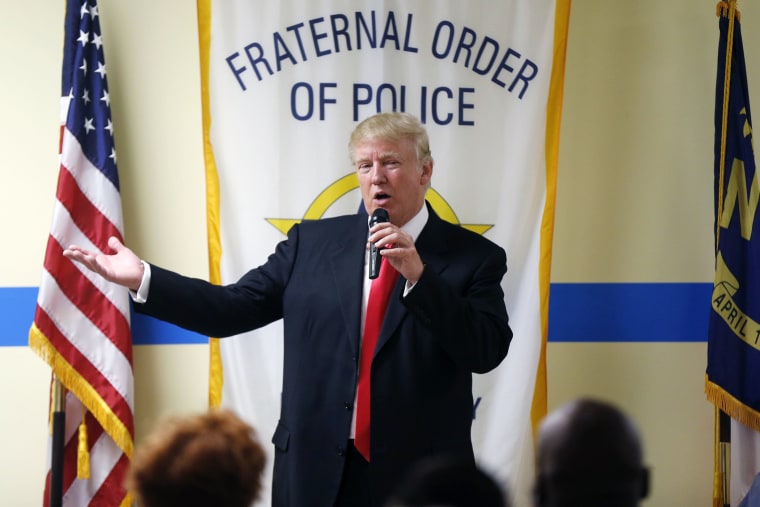Donald Trump caused a bit of a stir yesterday with a tweet directed at Attorney General Jeff Sessions, calling it "disgraceful" that Sessions isn't going further "to investigate potentially massive FISA abuse." In reality, those abuses don't appear to exist, but there was an underlying truth that went largely overlooked.
The president, in this case, was targeting the FBI. Trump believes it was federal law enforcement that unfairly targeted his political operation, and it's FBI officials whom Trump wants the Justice Department to target.
A day earlier, members of the House Republican leadership spoke with reporters and fielded a series of questions about gun violence. GOP leaders directed much of their criticism at law enforcement.
House Speaker Paul Ryan (R-Wis.), for example, said of the Parkland shooting, "In this particular case, there were a lot of breakdowns, from the local law enforcement to the FBI getting tips that they didn't follow up on." House Majority Whip Steve Scalise (R-La.) added, "I think what angered me the most is when I see breakdowns with law enforcement."
A day earlier, much of the country heard about Trump boasting that he would've confronted the Parkland gunman with his bare hands, but did you happen to catch the comments that immediately preceded that claim?
"The way [local law enforcement] performed was, frankly, disgusting. They were listening to what was going on. The one in particular, he was then -- he was early. And then you had three others that probably a similar deal a little bit later, but a similar kind of a thing."You know, I really believe -- you don't know until you test it -- but I really believe I'd run in there, even if I didn't had a weapon. And I think most of the people in this room would have done that, too, because I know most of you. But the way they performed was really a disgrace."
In 2009, Barack Obama said a Boston-area police officer acted "stupidly" when he arrested Harvard professor Henry Louis Gates Jr. in his own home. It sparked months of outrage and years of conservative claims about the Democratic president being "hostile" toward the police. The incident served as a reminder of why law enforcement is so often aligned with Republican politics.
Nearly a decade later, however, the politics have changed. Suddenly, it's Republican leaders who are blasting law enforcement in ways we're not accustomed to.
For all his talk about "law and order," Trump has spent much of his presidency targeting law enforcement in stunning ways, including firing U.S. attorneys under unusual circumstances, firing an acting U.S. Attorney General who dared to give the White House sound legal advice, and firing the director of the FBI in the hopes of derailing an ongoing investigation. It's just part of an extended, months-long presidential campaign against federal law enforcement.
But he's not alone. The NRA's Wayne LaPierre targeted the FBI in his speech last week at the Conservative Political Action Committee (CPAC), and plenty of other speakers at the same event did the same thing. NBC News reported the other day, "The Conservative Political Action Conference has an enemies list: the FBI, the Justice Department and special counsel Robert Mueller."
There's no great mystery here: the more a Republican president faces legal jeopardy, the more Republican politicians feel the need to protect their president by going after those who enforce the law. About a month ago, the Washington Post reported:
Republican leaders' open defiance last week of the FBI over the release of a hotly disputed memo revealed how the GOP, which has long positioned itself as the party of law and order, has become an adversary of federal law enforcement as the party continues its quest to protect President Trump from the Russia investigation.The FBI, the Justice Department and other agencies are now under concerted assault by Republicans, facing allegations of corruption and conspiracy that have quickly moved from the fringes of the right into the mainstream of the GOP.
The same day, Politico reported that the right has "learned to hate the FBI," which in turn has "upended the longstanding norms of Washington."
There are elements of this that we don't yet know. Will Republicans shift their posture after the Trump era ends? Will law enforcement overlook the GOP's offensive as a temporary blip?
Time, obviously, will tell, but in the meantime, the traditional ties between Republican politics and law enforcement appear to be fraying in ways that would've been hard to predict in the recent past.
